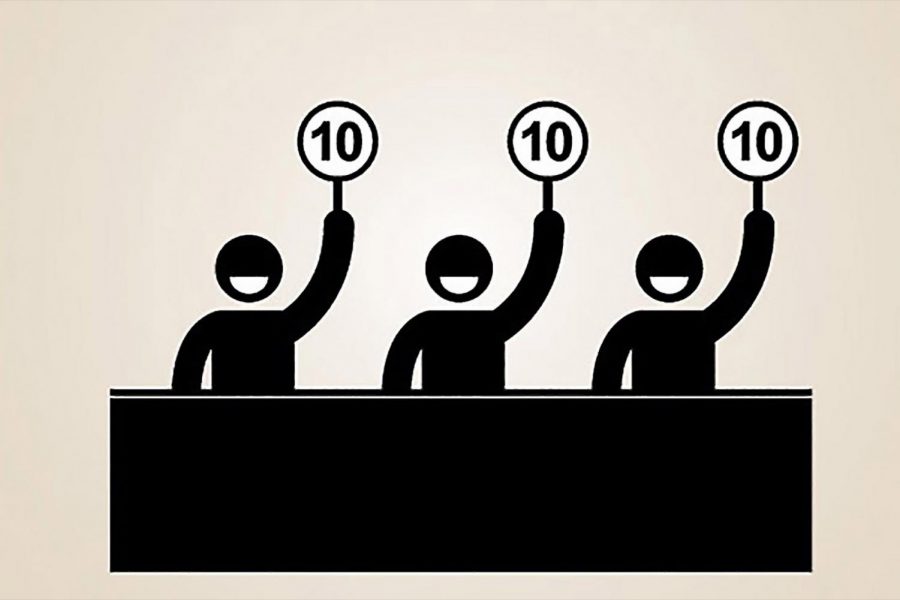Introspection #19: Settling for “Good Enough”
We can never be perfect. And we never have to be.
I am sure that most of you have been drilled with the notion that everyone makes mistakes. However, it is still difficult for most, including myself, to accept that we have limitations, and we should be okay with that. A nagging thought in our brain compels many of us to believe that there is always something that we can do to erase our shortcomings and become the perfect individual we aspire to be.
But what exactly constitutes “a perfect person”?
Some individuals may find a person simply with a kind heart to be perfect. Others may be more specific, recognizing perfection in others who have dark hair and an impressive work ethic. Maybe a person could just find perfection in an individual who simply is always at the person’s side. In truth, being “a perfect human” is a man-made concept, lacking universal consensus. One may find a person with a sheerly kind heart to be too passive. The rich dark hair and hard-working personality of one individual may appear distasteful to one who prefers blond individuals who love to spend most of their time relaxing. Some people might prefer dealing with their issues on their own, annoyed by those who insist on consoling them whenever possible. The truth is that no matter what, there will always be characteristics in each of us that fail to align with the interests of others.
So why do we have friends despite our imperfections? Despite how many flaws we perceive in ourselves, why are some people willing to offer some sense of compassion to us? Why are some people nice enough to look past our blemishes and just appreciate how we simply are?
I believe that our species has lived long enough to realize and accept that having inadequacies is part of human nature. Therefore, rather than seeking for impossibly “perfect” humans to acquaint with, we satisfy ourselves with those who are “good enough.” Not the most math-brained individuals, but smart enough to tackle life’s most crucial complex issues. Not the kindest individuals, but nice enough to always help you around the house during days when you most desperately need a break. Not the most confident individuals, but brave enough to at least be open to presenting in front of others, despite needing to take large breaths beforehand.
Most of all, many believe that individuals who are “good enough” can recognize their deficiencies and at least act upon them. As I mentioned, we will never be perfect— even the most gorgeous diamonds have their scratches.
But we can always become something better.
Therefore, I believe to be a great human being does not require being perfect, but rather, being willing to address and act upon the flaws that others point out by listening. To illustrate, I remember when someone criticized me for sounding too narcissistic in a drafted email for a teacher. I misunderstood a question on a chemistry quiz, so I wanted to ask the teacher if I could retake the examination. However, I have seldom written emails to, let alone verbally conversed with, my educators, even though they mean so much to me. The significance that they have in my life was one reason why I was intimidated by the idea of emailing my chemistry teacher— if I said the wrong words, would my future be doomed? Would I still be able to successfully secure the skills from school that I need to flourish as I approach adulthood? My intimidation, unfortunately, got the best of me, and my frantic hands typed faster than my brain could process my request’s tone.
I am still learning how to sound humbler through my writing, but I do not plan on giving up. The longer I live through life refusing to acknowledge my degrading tendencies, the greater the detriment to my human development. Likewise, we all must be willing to grow. In light of this statement, we all must listen to others who provoke us to do so.
However, I do not think that most of our time should be spent trying to satisfy those who look down on us for our imperfections. Everyone is guilty of yielding qualities that deviate from at least one person’s standards of perfection. Rather than being overly discouraged by the features that we lack, appreciate those that make you shine. Use your self-appreciation to motivate yourself to become even better than you are now. Self-love encourages us to push ourselves to become something greater than before, regardless of the pressure we feel from others. Like most activities in life, urging ourselves to glorified heights can only serve us well if the act is done through intrinsic motivation.
If we try to improve upon our defects solely to impress others, the satisfaction we gain from accomplishing better things for ourselves declines as we lose our intrinsic motivation to do so. Constantly exerting ourselves in behaviors solely for extrinsic rewards kills our passion when we try to invoke meaningful changes for our well-being. Thus, when reflecting on who we become after trying to constantly appease others, we no longer see a version of ourselves that we enjoy. We only see one carved by others, lacking our personal touch.
Whether others’ feedback is constructive or hostile, we must be willing to take the first step and at the very least be open to any criticism that others provide us. Refusing to listen to others’ opinions makes us as bad as those seeking to deter our brilliance, both of which threaten the grace in our spirits.
Nevertheless, only listen to others regarding your insufficiencies if you believe that they are looking out for your best interests. Even though our innate sense of pride can make it difficult to accomplish this task, that corrosive feeling must be overcome to accept what is best for ourselves. Think about what others suggest. If you genuinely consider them to be remarking on your flaws just to make you feel bad about yourself, then disregard them, for they lack concern in seeing you flourish. If, however, you truly do believe that the words offered by others come with the best intentions, then at least consider taking steps to diminish the faults that they perceive in you.
We must carefully make the best judgments on how we should develop, remembering to appreciate the care that the people we find the most important yield for us. In the end, do not be afraid to grow in fear of the disappointment that will come with the process, for there will always be someone who finds you “good enough.” Enough for them to smile at you. Enough for them to treat you with undying respect.
And most of all, enough for them to love you so much that you deserve to love yourself as well.


